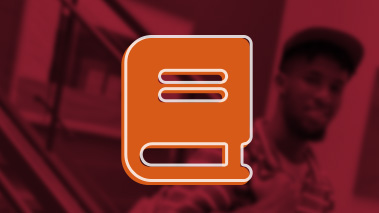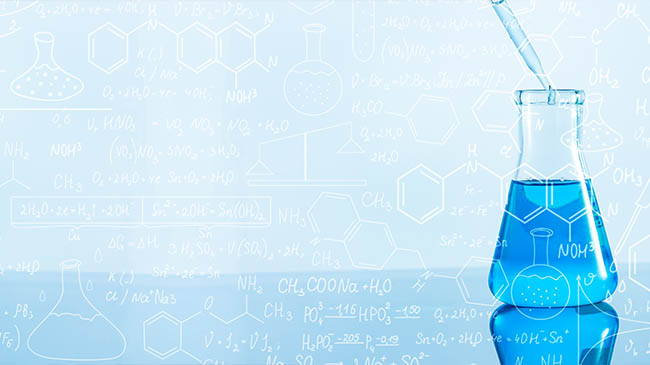Science, Biotechnology Laboratory Technician Major
- Associate of Science (A.S.)
Program Snapshot
Your Learning Options
In-Person, Hybrid, Online
66 Credit Hours
Estimated Time to Complete
2 years (5 full-time semesters)
In-State Tuition Per Credit Hour
$176.00 | Calculate your costs
Why Biotechnology?
Master lab techniques and hone critical thinking skills to empower you to thrive in the dynamic realm of biotechnology.
- Gain hands-on experience and mastery of fundamental laboratory techniques essential for a successful career in biotechnology.
- Go beyond basic skills and foster critical thinking, problem-solving, and participate in collaborative teamwork, essential for personal and laboratory achievements.
- Benefit from the expertise of dedicated instructors with extensive experience in biotechnology and engineering.
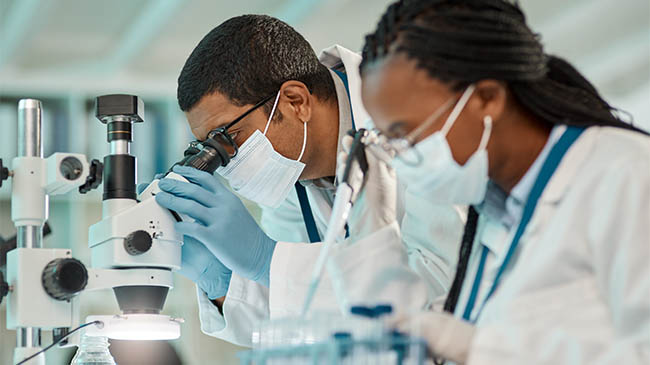
Program Roadmap
Get all the details on our Biotechnology program, including class sequences, admission requirements, financial considerations, and more.
Paying for College
We are committed to using all of the available funds to help you gain access to a college education. In fact, more than 91% of our students graduate without any educational debt. In 2023, Reynolds Community College students received over $21 million dollars in grants, loans, work-study and scholarships with the average aid awarded totaling over $4,000 per student.
Payment plans are offered to break down tuition payments. Textbook Assistance and Laptop Lending Programs are also available. Be sure to explore all the types of financial aid available as well!

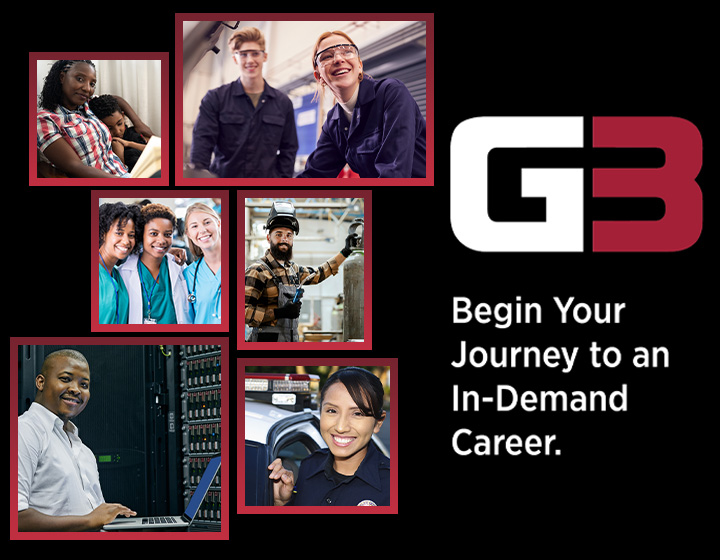
Get a Skill. Get a Job. Get Ahead.
G3 financial assistance at Reynolds can help cover tuition for select programs like this one! Starting something new or changing a career path can be scary, but if you want to earn workplace certifications or an academic degree that leads to a career, G3 tuition assistance can help remove the financial barrier of going to college.
Why Reynolds?
We are more than a community college.
Reynolds is the key that unlocks the door to your academic and professional success. Here you will find a safe place to start. We will help you explore, dream, succeed, try, and try again. Our amazing faculty and highly personalized advisors, your Reynolds Navigators, are well known for guiding you to discover that "aha moment.” That means an outstanding college experience, less debt, more freedom, and a solid start on your future.
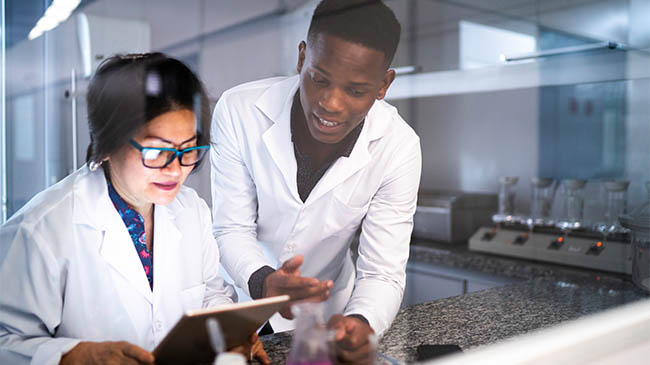
Prepare for a multitude of career pathways with employment prospects spanning state and federal government, scientific research and development, and private industry. Our program ensures you're equipped to meet the diverse demands of the biotechnology sector, offering a smart starting point both academically and financially.
Learn in a program that goes beyond basic skills, fostering critical thinking, problem-solving abilities, and collaborative teamwork, essential for personal and laboratory achievements. Access practical experience, research opportunities, and internships, providing you with invaluable hands-on learning and exposure to real-world scenarios.
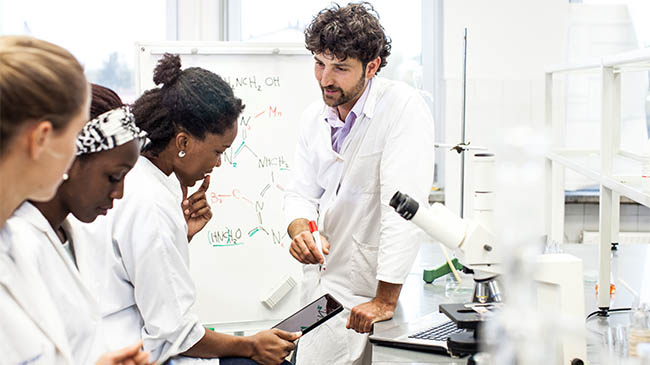

While our program prepares you for immediate employment, it also lays the foundation for further education and career advancement. Courses in biology, chemistry, and mathematics are meticulously integrated, offering a seamless pathway for transfer to Bachelor's degree programs and beyond.
Alum quote goes here. Adjust heading class if quote is too long.
Alum Name
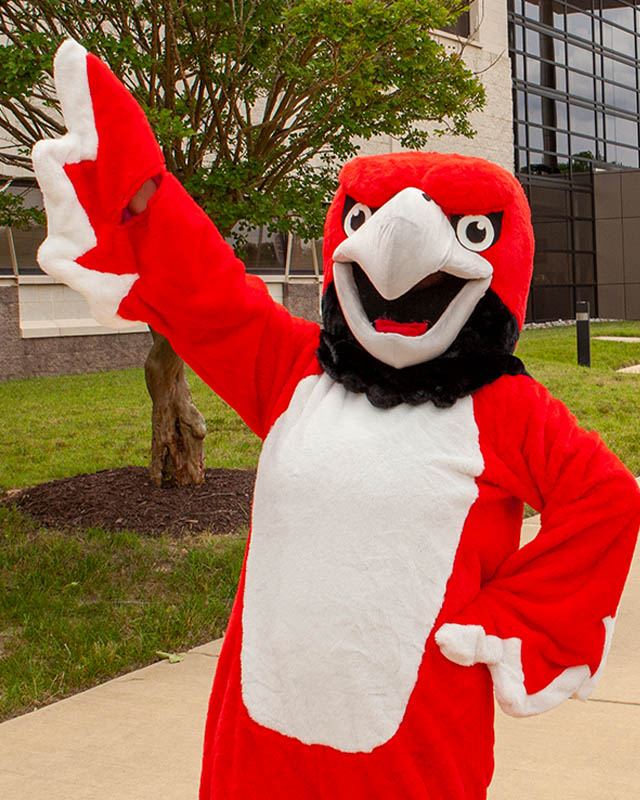
Faculty quote goes here. Adjust heading class if quote is too long.
Professor Name

Class Highlights
BIO 253 - Biotechnology Concepts
Examine the growing field of biotechnology ranging from basic cellular and molecular biology concepts to both basic and advanced laboratory techniques.
BIO 250 - Biotechnology Research Methods and Skills
Explore lab skills including the use of lab equipment and techniques such as solution chemistry, cell culture, DNA extraction and analysis.
BIO 251 - Protein Applications in Biotechnology
Gain an understanding of protein structure and function and learn the laboratory skills needed to successfully work with proteins.
Additional Program Information
PROGRAM OBJECTIVE: The Associate of Science degree is intended for students planning to transfer to a four-year college or university to complete a Bachelor of Science degree in the natural or physical sciences, mathematics, or computer science.
The Biotech Laboratory Technician major is designed for persons to gain the knowledge and basic laboratory skills needed for entry-level employment as a laboratory technician in biotech or research laboratories. The opportunities for persons with expertise in this area are rapidly increasing. While this program prepares persons for immediate employment as a laboratory technician, it also includes courses in biology, chemistry, and mathematics needed for transfer into Bachelor’s degree programs, providing a pathway to further education and career advancement.
STUDENT LEARNING OUTCOMES:
- Demonstrate basic lab skills, effectively communicate laboratory data and information from the scientific method and apply the interdisciplinary approach of science to society.
- Demonstrate basic competency with word processing, spreadsheets, and be able to create, analyze and interpret charts, graphs, and data tables as related to the scientific fields.
- Basic content knowledge and laboratory skills in two of the following disciplines: Biology, Chemistry, Geology, or Physics, or intermediate content knowledge and laboratory skills in Chemistry.
- Demonstrate the ability to interpret and use mathematical formulas and apply them to lab experiments using scientific reasoning.
- Display fluency with algebraic, exponential functions and manipulations necessary for success in statistical and mathematical calculations.
PROGRAM NOTES: This degree satisfies the requirements for the Uniform Certificate of General Studies (UCGS).
ADMISSION REQUIREMENTS: General college curricular admission.
PROGRAM NOTES: The following high school units are strongly recommended for the Science degree: four units of English, four units of college preparatory mathematics (including algebra, geometry, and trigonometry or advanced math), two units of laboratory science, and two to three units of a foreign language.
Students are advised to consult the upper-division college, university, or professional school to which they intend to transfer for specific major and admission requirements. Additionally, students should note that grades of C or higher are typically required for courses to be eligible for transfer to a four-year institution.
COMPUTER COMPETENCY REQUIREMENT: Students in this program will meet the college’s computer competency requirement by passing the computer competency exam, administered in the testing centers on each campus, or by completing ITE 152 - Introduction to Digital Literacy. Students not passing the computer competency exam for ITE 152 - Introduction to Digital Literacy may retake the exam only once.
TRANSFER INFORMATION: Students are advised to consult the upper-division college, university, or professional school to which they intend to transfer for specific major and admission requirements. Additionally, students should note that grades of C or higher are typically required for courses to be eligible for transfer to a four-year institution.
NOTE TO PROSPECTIVE TEACHERS: Students who wish to be licensed to teach in Virginia should earn a baccalaureate degree in a liberal arts, science, or mathematics field. Students should consult with their advisor regarding elective choices that match their desired teaching endorsement area(s). While enrolled at the community college, students should prepare for and successfully complete Praxis Core (Reading, Writing, and Mathematics), the initial teacher licensure examination.
